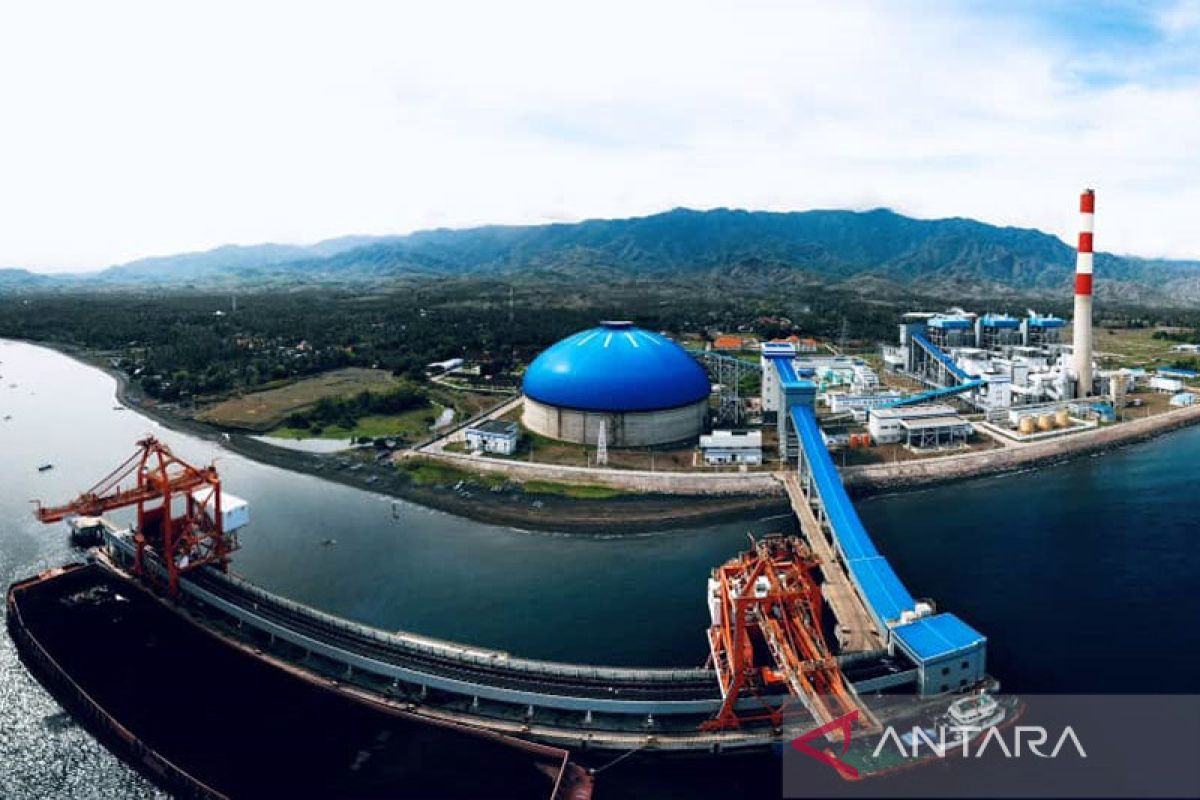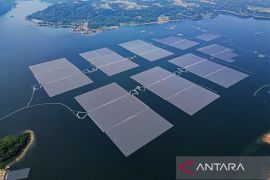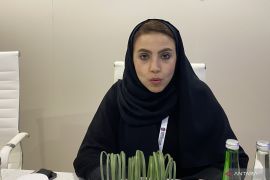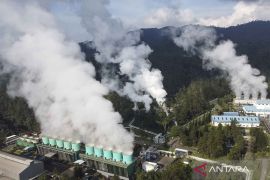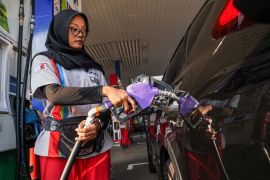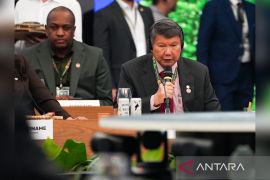After the G20 (summit), what has become one of the game changers or commodities is no longer coal or oil and gas, but green commodities.Jakarta (ANTARA) - The G20 Summit this year resulted in the 52-point Bali Leaders' Declaration reflecting the stance of the G20 leaders, with point number 12 stressing their commitment to achieving the sustainable development goals (SDGs).
According to Finance Minister Sri Mulyani Indrawati, the 12th point is related to the achievement of SDG number 7 concerning access to energy and eradicating poverty due to lack of access to energy.
"Green energy is not only about subsidy but also funding to retire coal and investment in renewable energy," she said.
In this context, the G20 countries have committed to accelerating the implementation and development of low-emission power plants through new, renewable energy (EBT) along with expediting the phase-out of coal-fired power plants, the minister noted.
The agreement has been directly implemented by G20 member countries, with Indonesia receiving an energy transition financing commitment of US$20 billion under the Just Energy Transition Partnership (JETP) scheme from developed countries that are members of the G7, especially the United States and Japan.
In addition, Indonesia has also obtained an energy transition financing commitment of US$250–300 million from the Asian Development Bank (ADB) under the Energy Transition Mechanism (ETM).
Related news: Collaboration vital in pursuing green economy towards realizing SDGs
National commitment
These energy transition funds will support Indonesia's commitment to carrying out the energy transition to green energy in a bid to achieve the SDGs.
The Indonesian government earlier increased its 2030 greenhouse emissions reduction target through its own efforts from 29 percent to 31.89 percent, as stated in the Enhanced Nationally Determined Contributions (ENDC) document.
Meanwhile, the 2030 target for greenhouse gas emissions reduction with international support was also raised from 41 percent to 43.2 percent, based on the document.
Indonesia also committed to reaching net-zero emissions (NZE) by 2060 or sooner.
Those commitments are part of Indonesia's efforts to lead by example in the energy transition program at the global level, as declared at the G20 Summit.
Related news: Indonesia focusing on green economy to tackle climate crisis: Minister
Monitoring energy transition
Given the large value of funding, all parties need to monitor energy transition projects to ensure budget allocations are timely and on target so that the transition to green energy can be in line with the ENDC 2030 emission reduction and 2060 net-zero emission targets.
According to executive director of the Center of Economic and Law Studies (Celios), Bhima Yudhistira, the implementation of energy transition funding and projects through the JETP and the ETM schemes must be carried out transparently.
The JETP and the ETM are in the form of loans, not pure private investments. Thus, it is essential to uphold transparency regarding what projects will be funded and provide detailed information about them to the public.
To this end, the involvement of the community is deemed crucial in the energy transition financing and projects in Indonesia.
"The involvement of the community is needed to choose which project, what the basis is," he said.
The next six months are expected to be a crucial period for Indonesia in preparing the energy transition funding framework. So far, the country has been committed to preparing an immediate action plan.
Coordinating Minister for Maritime Affairs and Investment, Luhut Binsar Pandjaitan, emphasized that in the next six months, Indonesia will lead the preparation of cooperation and action plans to produce a comprehensive investment plan and real joint targets for the financing of the energy transition.
Related news: Follow up energy transition cooperation at G20 Summit: Minister
As a follow-up to this, the government has appointed state-owned infrastructure financing company PT Sarana Multi Infrastruktur as the energy transition mechanism (ETM) country platform manager to manage the funding framework for the energy transition in Indonesia.
The company has been asked to accommodate representatives from affected communities during the implementation of the energy transition so that the principles of justice can be realized.
In the six-month period, the government will need to provide a space that is transparent and open for those who are affected by the energy transition to participate in.
The energy transition financing must be split equally between efforts toward the early retirement of coal-fired power plants and projects for developing new, renewable energy.
"From the investment side, new, renewable energy also requires a big amount of funds, so do not spend it all on the early retirement of coal-fired power plants because the value is called overvalued, too large to fund one coal-fired power plant’s early retirement," Yudhistira said.
The financing of the energy transition deserves to get attention and be monitored by all parties, considering that green energy has the potential to become a new source of economic growth in the future.
The energy transition can become a game changer and Indonesia has vast potential to become one of the green commodity "giants" in the next few years.
"After the G20 (summit), what has become one of the game changers or commodities is no longer coal or oil and gas, but green commodities," the Celios executive director remarked.
Related news: RI to discuss boosting cooperation in energy transition with Japan
Related news: Committed to developing energy transition mechanism: Indrawati
Editor: Suharto
Copyright © ANTARA 2022
